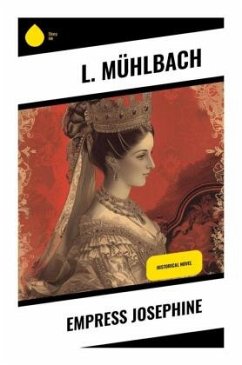
The Countess of Rudolstadt
Historical Novel
Übersetzung: Robinson, Fayette
Versandkostenfrei!
Versandfertig in 6-10 Tagen
16,10 €
inkl. MwSt.
Weitere Ausgaben:

PAYBACK Punkte
0 °P sammeln!
In "The Countess of Rudolstadt," George Sand weaves a rich tapestry of romanticism and realism, exploring the intricacies of love, social identity, and personal autonomy. Set against a tumultuous backdrop of political intrigue and existential questioning, the narrative follows the profound yet complex relationship between the countess and her suitors. Sand's style is characterized by its lyrical prose and philosophical underpinnings, inviting readers to delve into the emotional and moral dilemmas faced by her characters within the framework of 19th-century European society. George Sand, a trai...
In "The Countess of Rudolstadt," George Sand weaves a rich tapestry of romanticism and realism, exploring the intricacies of love, social identity, and personal autonomy. Set against a tumultuous backdrop of political intrigue and existential questioning, the narrative follows the profound yet complex relationship between the countess and her suitors. Sand's style is characterized by its lyrical prose and philosophical underpinnings, inviting readers to delve into the emotional and moral dilemmas faced by her characters within the framework of 19th-century European society. George Sand, a trailblazing feminist and social reformer, was heavily influenced by the tumultuous events of her time, including the 1848 French Revolution. Her real name, Amantine Lucile Aurore Dupin, she famously rejected traditional gender roles, using her novels to challenge societal norms and advocate for individual freedom. "The Countess of Rudolstadt" encapsulates her belief in the power of love as a transformative force, reflecting her personal struggles and her commitment to the pursuit of truth and artistic expression. This book is recommended for readers seeking a thought-provoking exploration of love's complexities and an examination of societal constraints. Sand's eloquent narrative not only captivates but also challenges readers to reflect on their own values and beliefs, making it a timeless addition to feminist literature and a fascinating journey into the human spirit.













